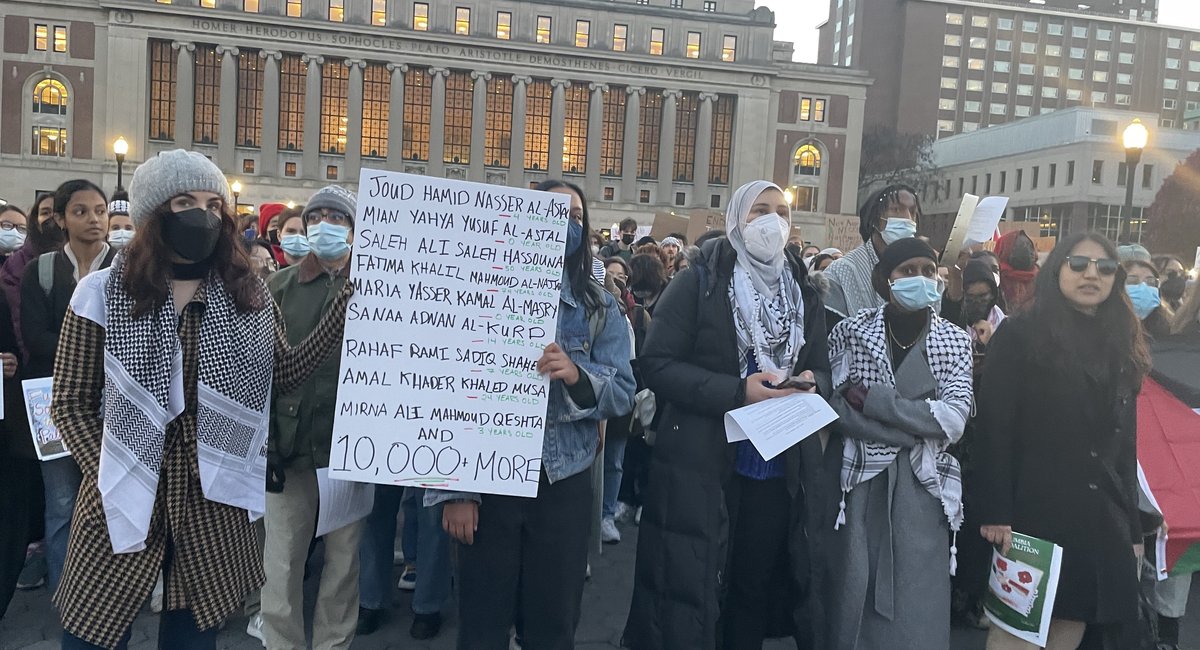N-95s and surgical masks are once again a common accessory at Columbia University, but not because of COVID-19.
Many students say they’re masking up at protests — or using keffiyehs to conceal their faces — out of fear of online harassment for publicly supporting Palestinians since the Oct. 7 attacks.
The masks are perhaps the most obvious sign of the fear and anger that has consumed campus life in recent weeks. Students on both sides of the debate over the Israel-Hamas war say dialogue has deteriorated to outright hostility. Meanwhile, some faculty members say they fear the professional consequences of delving into the issue.
In interviews, students and faculty on both sides of the conflict agree the university has struggled to respond to the protests and attacks. Earlier this month, university leaders suspended the chapters of two prominent student groups, Students for Justice in Palestine and Jewish Voice for Peace, for repeatedly holding “unauthorized events.”
The final straw, the university wrote in an announcement, was a protest on Nov. 9 that included “threatening rhetoric and intimidation.” Organizers distributed masks at the contentious rally, where Gothamist saw a man removed by police after shouting antisemitic threats. The NYPD had no information on the incident.
But the suspension of the student groups only prompted more protests.
On Monday, a coalition of more than 2,800 alumni vowed to withhold donations in response to the suspensions. A protest over the move was expected in the evening.
Since the attack by Hamas militants on Oct. 7 that killed 1,200 people in Israel, New York City’s Ivy League university campus has been reeling.
“People want to express their views, and I think in a normal situation, it would be fine doing that without masks or without hiding their identities,” Deen Haleem, a 24-year-old student activist at Columbia Law School, said at a recent protest in response to the suspension of the student groups.
“It’s not…
Read the full article here

Leave a Reply